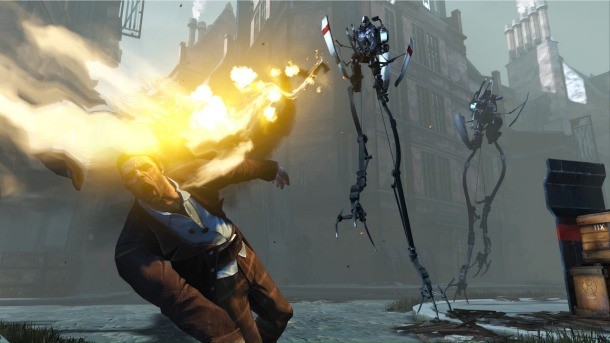007 First Light headlines our newest issue about the most anticipated games of 2026 and beyond. Subscribe now!
Opinion: This Is My Story

More and more video games are giving players choices to shape the narrative of their character and the story as a whole. What could be more natural in an interactive medium? Gamers have eagerly embraced the chance to make decisions and craft their own tale in games like Mass Effect 3, Dishonored, The Walking Dead, and many others.
The sheer amount of time we spend playing these titles – and given the weight as well as volume of some of the decisions to make for our characters – naturally endears us to them and gives a sense of ownership over the narrative outcomes. With all this time and emotion invested in an experience I shaped myself, replaying the game or going back to see how things might have turned out differently feels unnatural. I’ve already made those choices, and I’m going to stand by them because that’s the story I’ve made for myself.
I understand the temptation to see what could have happened in a game had you made different choices or wanting to explore all the content a developer has created. I wouldn’t mind revisiting some of my decisions when a game handles my choice in a manner I wasn’t expecting. But when I reflect on everything that has happened to my character at the end of the game, changing that by going back and sampling different paths fundamentally alters the game experience itself.
Some people start from scratch with a new character to make new decisions and craft an alternative narrative (like in Mass Effect, for instance). When I try to do this I find that I can’t forget what I’ve already experienced the first time around. Since many of the decisions and outcomes would be the same anyway, I feel I’m just treading familiar ground.
Like life itself, a single playthrough represents both the good and bad. You may regret something you’ve done in the game, but every life has moments of regret. In a much bigger sense, striving for perfection is a flaw in and of itself, and in terms of a game, there is something to be cherished in a story that reflects who you are – warts and all. The luxury of choice that modern games afford us in relation to their compelling characters and stories is perhaps the biggest achievement of our interactive medium. Ironically, exercising the power of choice by replaying a section can erode the significance of that choice.
Games also expand their stories with DLC that adds on to it after the fact. I’ve bought story-based DLC in the past, but I usually like stories that are finite in scope. I don’t feel the need to consume a property’s content just because it represents more of something I already like. I’d rather have one good story run its course than oversaturate the experience with small side stories that come out after you have already experienced a resolution.
We can craft our own experiences in video games, which is an extraordinary power for a medium. But repeating playthroughs and sampling of different outcomes, in my opinion, can defuse that power and ultimately rob me of what I’ve worked so hard to earn.
This article originally ran in the March 2013 (#239) issue of Game Informer.

Get the Game Informer Print Edition!
Explore your favorite games in premium print format, delivered to your door.
- 10 issues per year
- Only $4.80 per issue
- Full digital magazine archive access
- Since 1991









